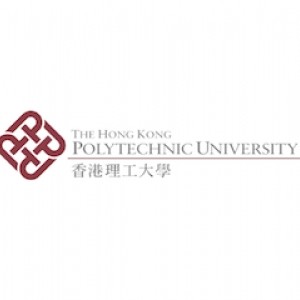Photos of university / #hongkongpolyu
The Bachelor of Science (Honours) in Fire and Safety Engineering at The Hong Kong Polytechnic University is a comprehensive undergraduate programme designed to equip students with essential knowledge and practical skills in fire safety, accident prevention, and emergency response management. The programme aims to prepare graduates to address complex safety challenges across various industries, including construction, manufacturing, transportation, and public safety sectors. Through a curriculum that integrates core engineering principles with specialised fire safety modules, students will gain an understanding of fire dynamics, fire protection systems, risk assessment, and safety management practices.
The programme emphasizes both theoretical foundations and hands-on experiences, ensuring graduates are capable of performing safety inspections, conducting fire risk assessments, designing effective safety systems, and managing emergency procedures. Students will have access to state-of-the-art laboratories, simulation facilities, and industry-experienced instructors to enhance their learning. Furthermore, the programme encourages development of critical thinking, problem-solving skills, and teamwork abilities essential for leadership roles in safety management.
Graduates of the programme will be well-positioned to pursue careers as fire safety engineers, safety consultants, emergency management officers, and other related roles in government agencies, private companies, and multinational corporations. The curriculum also provides strong preparatory knowledge for those wishing to pursue postgraduate studies in safety engineering or related fields. With increasing emphasis on safety standards and compliance globally, the Bachelor of Science (Honours) in Fire and Safety Engineering at PolyU offers an excellent foundation for students passionate about advancing safety and protecting lives and property through innovative engineering solutions.
For the MSc with Dissertation
Students must complete 7 taught subjects, including 3 specified compulsory Core Subjects plus at least 3 other Core Subjects, including at least one of the two subjects, Accident Prevention, Hazard Assessment & Control (BSE558) and Safety Management Systems & Safety Auditing (BSE559), and a Dissertation that is relevant to their area of specialisation.
For the MSc without Dissertation
Students must complete 10 taught subjects, including 3 specified compulsory Core Subjects plus at least 4 other Core Subjects, including at least one of the two subjects, Accident Prevention, Hazard Assessment & Control (BSE558) and Safety Management Systems & Safety Auditing (BSE559).
Students can exit at the PgD level, having satisfactorily completed 7 taught subjects, including 3 specified compulsory Core Subjects plus at least 3 other Core Subjects, including at least one of the two subjects, Accident Prevention, Hazard Assessment & Control (BSE558) and Safety Management Systems & Safety Auditing (BSE559).
Core Areas of Study
The following is a brief summary of the core areas of study. Students will be provided with detailed information on the subjects available for selection upon registration.
Fire Engineering
- Fire Modelling
- Fire Safety Management
- Engineering Performance-based Fire Codes
- Fire Engineering Systems
- Building Fire Safety Design
- Fire Hazard Assessment
Safety Engineering
- Risk Analysis
- Safety Management
- Safety Auditing
- Accident Prevention
- Safety in Construction Sites
- Occupational Health & Ergonomics
Requirements
- A Bachelor's degree with Honours in architecture, fire engineering, safety engineering, building services engineering, construction, building surveying, building technology, applied science, engineering, physics or chemistry;
OR - A professional qualification plus relevant work experience that is related to the construction industry, such as full membership of the HKIE, HKIS, HKIA, CIBSE, CIOB, IMechE, ICE, IStructE or IEE.
- Evidence of an employer's support or sponsorship is an advantage, and relevant work experience in a fire engineering or safety engineering-related role is preferred.
- Mature candidates who have experience in fire and safety engineering, but who lack formal qualifications, may be admitted subject to an interview and a review of their experience.
- If you are not a native speaker of English, and your Bachelor's degree or equivalent qualification is awarded by institutions where the medium of instruction is not English,
The Hong Kong Polytechnic University offers various financial aid options for students enrolled in the Fire and Safety Engineering programme. These include government-funded scholarships, bursaries, and student loans designed to support both local and international students in pursuing their education. Scholarship schemes such as the Hong Kong PhD Fellowship Scheme and the University Grants Committee funding provide merit-based financial assistance to outstanding students. Additionally, the university offers need-based bursaries to assist students from low-income families in covering tuition fees and living expenses.
Apart from institutional aid, students may also benefit from external scholarships offered by industry partners, professional bodies, and government agencies. These scholarships are often awarded based on academic performance, leadership qualities, and potential contributions to the field of fire safety engineering. The university's Career Services Office provides guidance on securing internships and employment opportunities that can help students accumulate professional experience and financial support during their studies.
For students pursuing research components within the programme, funded research projects and assistantships are available, offering stipends to support research work. International students are encouraged to explore scholarship programs specific to their regions, and the university provides dedicated support to assist with the application process. Cost of living in Hong Kong is a consideration, and students are advised to plan their finances accordingly, utilizing the various financial aid options to manage tuition fees, accommodation, and personal expenses effectively. The university's financial aid office offers personalized advice and assistance to help students navigate the available funding sources, ensuring that financial constraints do not hinder their educational ambitions.
Fire and Safety Engineering at The Hong Kong Polytechnic University is a comprehensive undergraduate program designed to equip students with the knowledge and skills necessary to address fire safety challenges in various environments. The program covers fundamental topics such as fire dynamics, safety engineering principles, risk assessment, fire protection design, and emergency management. Students gain practical experience through laboratory work, design projects, and industry placements, preparing them for careers in fire safety consultancy, fire protection systems installation, and safety regulation enforcement. The curriculum emphasizes a multidisciplinary approach, integrating engineering principles with safety management and environmental considerations. Graduates of this program are expected to contribute to the development of safer built environments, improve firefighting techniques, and formulate effective safety policies. The program combines theoretical coursework with applied practice, reflecting the evolving needs of the fire safety industry. Moreover, students have access to state-of-the-art laboratories, simulation facilities, and collaborations with industry partners, enhancing their learning experience. Graduates are well-qualified to pursue leadership roles in fire safety management, consultancy firms, government agencies, and research institutions. The program also offers opportunities for postgraduate study and professional development, supporting lifelong learning and career advancement in the field of fire safety engineering.


